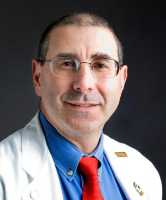
30 Jan Antioxidants May Enhance Efficacy of Chemotherapy on Glioblastoma
MedicalResearch.com Interview with:

Dr. Litofsky
Dr. Scott Litofsky, MD
Division of Neurological Surgery
University of Missouri-Columbia School of Medicine
Columbia, MO 65212
MedicalResearch.com: What is the background for this study? What are the main findings?
Response: Many patients take over-the-counter medications to held their cancers. Some of these remedies may be helpful; others are potentially harmful. Anti-oxidant medications are frequently selected by patients as they are inexpensive and available.
We were approached by a high school student, Macy Williams (one of the authors) to do some research in our laboratory when she won a research scholarship (the 2016 Emperor Science Award) from Stand Up to Cancer. She worked with us several times per week doing experiments during her senior year of high school. When she graduated, we continued the work that she started.
We studied effects of Vitamin D3, Melatonin, and alpha-Lipoic Acid on glioblastoma cells, a highly malignant brain tumor. We included experiments of these agents alone and in combination with Temozolomide, a chemotherapy agent used as standard of care in glioblastoma. The work was done in cultured cells, measuring growth and survival of cells. We used concentrations that could be achieved by oral intake of the drugs.
We found that antioxidant medications, particularly alpha Lipoic Acid, had synergistic effects with Temozolomide – that is Temozolomide impair glioblastoma cell growth and survival better when combined with an antioxidant. The mechanism of action may be through reactive oxygen species.
MedicalResearch.com: What should readers take away from your report?
Response: Antioxidant over-the-counter medications may be helpful when combined with traditional chemotherapeutic agents in treating glioblastoma. Further work needs to be done to understand exactly how these agents work and how they best be use.
MedicalResearch.com: What recommendations do you have for future research as a result of this work?
Response: We need to assess additional cell line and additional cancer behaviors, such as tumor cell migration, tumor cell invasion into normal brain, blood vessel formation, and effects on survival. We need to closely examine possible mechanisms of action.
Citation:
McConnell DD, McGreevy JW, Williams MN, Litofsky NS. Do Anti-Oxidants Vitamin D3, Melatonin, and Alpha-Lipoic Acid Have Synergistic Effects with Temozolomide on Cultured Glioblastoma Cells?. Medicines (Basel). 2018;5(2):58. Published 2018 Jun 20. doi:10.3390/medicines5020058
[wysija_form id=”3″]
[last-modified]
The information on MedicalResearch.com is provided for educational purposes only, and is in no way intended to diagnose, cure, or treat any medical or other condition. Always seek the advice of your physician or other qualified health and ask your doctor any questions you may have regarding a medical condition. In addition to all other limitations and disclaimers in this agreement, service provider and its third party providers disclaim any liability or loss in connection with the content provided on this website.
Last Updated on January 30, 2019 by Marie Benz MD FAAD
